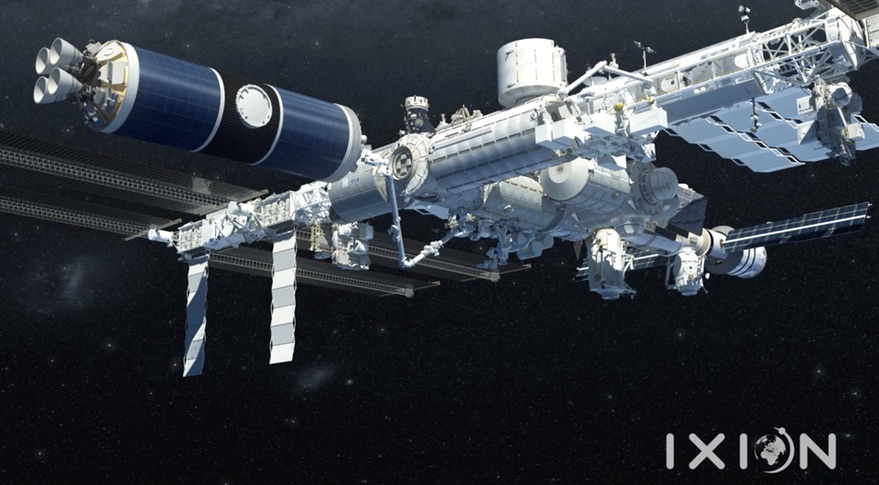Study Validates NanoRacks Concept for Commercial Space Station Module

Breaking space news, the latest updates on rocket launches, skywatching events and more!
You are now subscribed
Your newsletter sign-up was successful
Want to add more newsletters?

Delivered daily
Daily Newsletter
Breaking space news, the latest updates on rocket launches, skywatching events and more!

Once a month
Watch This Space
Sign up to our monthly entertainment newsletter to keep up with all our coverage of the latest sci-fi and space movies, tv shows, games and books.

Once a week
Night Sky This Week
Discover this week's must-see night sky events, moon phases, and stunning astrophotos. Sign up for our skywatching newsletter and explore the universe with us!

Twice a month
Strange New Words
Space.com's Sci-Fi Reader's Club. Read a sci-fi short story every month and join a virtual community of fellow science fiction fans!
HOUSTON — A five-month study supported by NASA has concluded that it is technically feasible to convert a launch vehicle upper stage into a habitat module that could be used on the International Space Station or future commercial space station.
Jeffrey Manber, chief executive of NanoRacks, discussed the results of the study, part of NASA's Next Space Technologies for Exploration Partnerships 2 (NextSTEP-2) effort, in panel discussions Dec. 6 at the SpaceCom Expo here.
The concept, called Ixion, involves taking an Atlas 5 upper stage left in low Earth orbit after a launch and refitting it with life support and other systems needed to support a crew. That converted module could then be attached to the ISS or be used as part of a standalone commercial space station.
The idea of converting an upper stage into a space station module is not a new one. Manber noted that, half a century ago, NASA studied the so-called "wet workshop" approach as one approach for what would become the Skylab space station, but concluded it was too difficult.
Technological improvements have changed that assessment. "We're now increasingly confident that we can show NASA that this second stage can be repurposed both using crew or even, amazing to me, doing it robotically," Manber said.
Manber said later that NanoRacks has looked at both the Centaur upper stage currently used by the Atlas 5 as well as the Advanced Cryogenic Evolved Stage (ACES), a new upper stage under development by United Launch Alliance for use on its next-generation Vulcan rocket. ULA is one of the companies partnered with NanoRacks on the Ixion study, along with Space Systems Loral and space tourism company Space Adventures.
Should such a module eventually be built and flown on the ISS or a commercial station, Manber said there is a wide variety of potential uses for it. They range from space tourism to on-orbit manufacturing. There are "several legitimate consumer non-traditional customers that have interest in using a commercial platform," he said, stating those potential users were under non-disclosure agreements.
Breaking space news, the latest updates on rocket launches, skywatching events and more!
"For us, it's to now envision how we can make this sustainable," he said. "We're now looking at how we can do this in a commercial manner. One of the clues is that one of our partners is Space Adventures."
However, he cautioned that, at this early stage, it's not clear what applications for such a module will develop, and to what size. "We don't exactly yet know" what those uses will be, he said, requiring a "leap of faith" of some degree that commercial modules will serve the needs of the market.
Manber didn't discuss what the immediate next steps for the Ixion module concept were. "We'll have some more announcements in the coming months on what we're going to be doing with this commercial module," he said.
This story was provided by SpaceNews, dedicated to covering all aspects of the space industry.

Jeff Foust is a Senior Staff Writer at SpaceNews, a space industry news magazine and website, where he writes about space policy, commercial spaceflight and other aerospace industry topics. Jeff has a Ph.D. in planetary sciences from the Massachusetts Institute of Technology and earned a bachelor's degree in geophysics and planetary science from the California Institute of Technology. You can see Jeff's latest projects by following him on Twitter.

